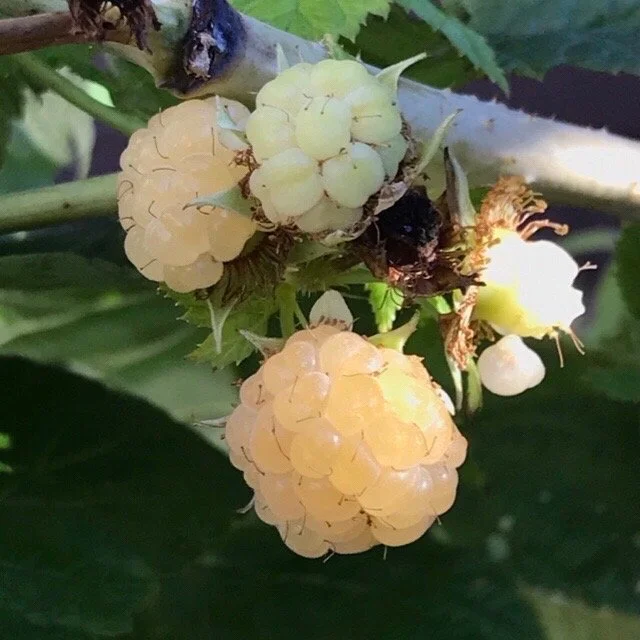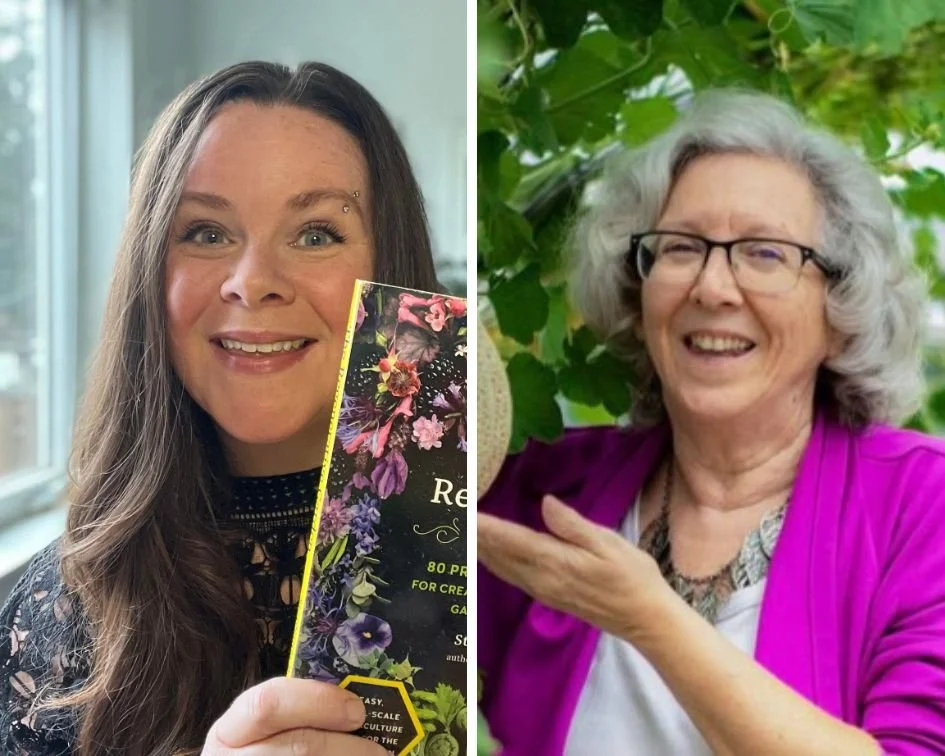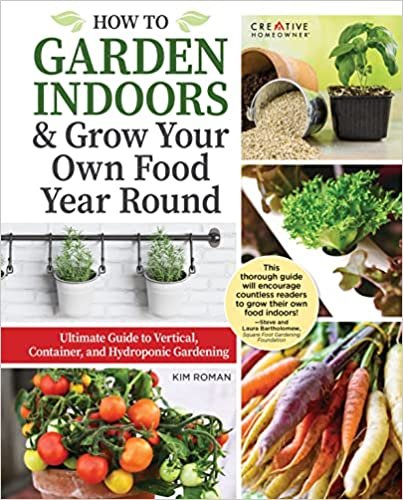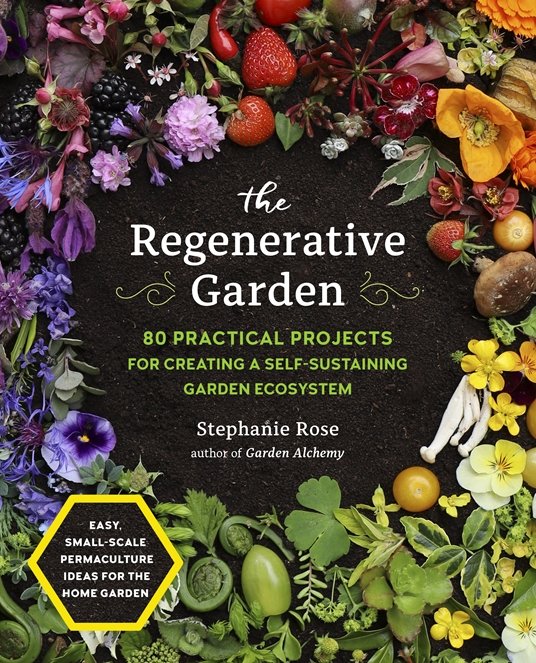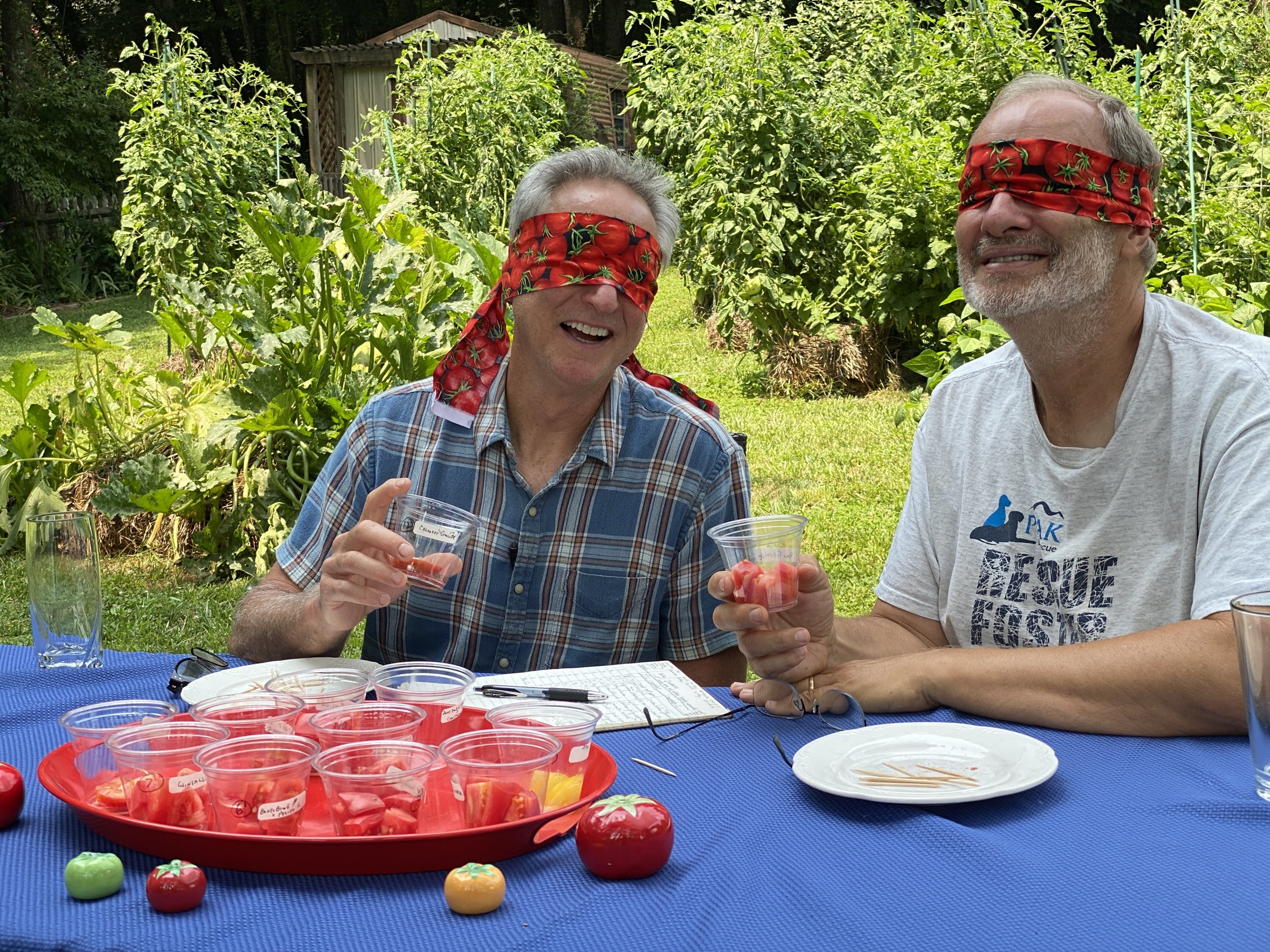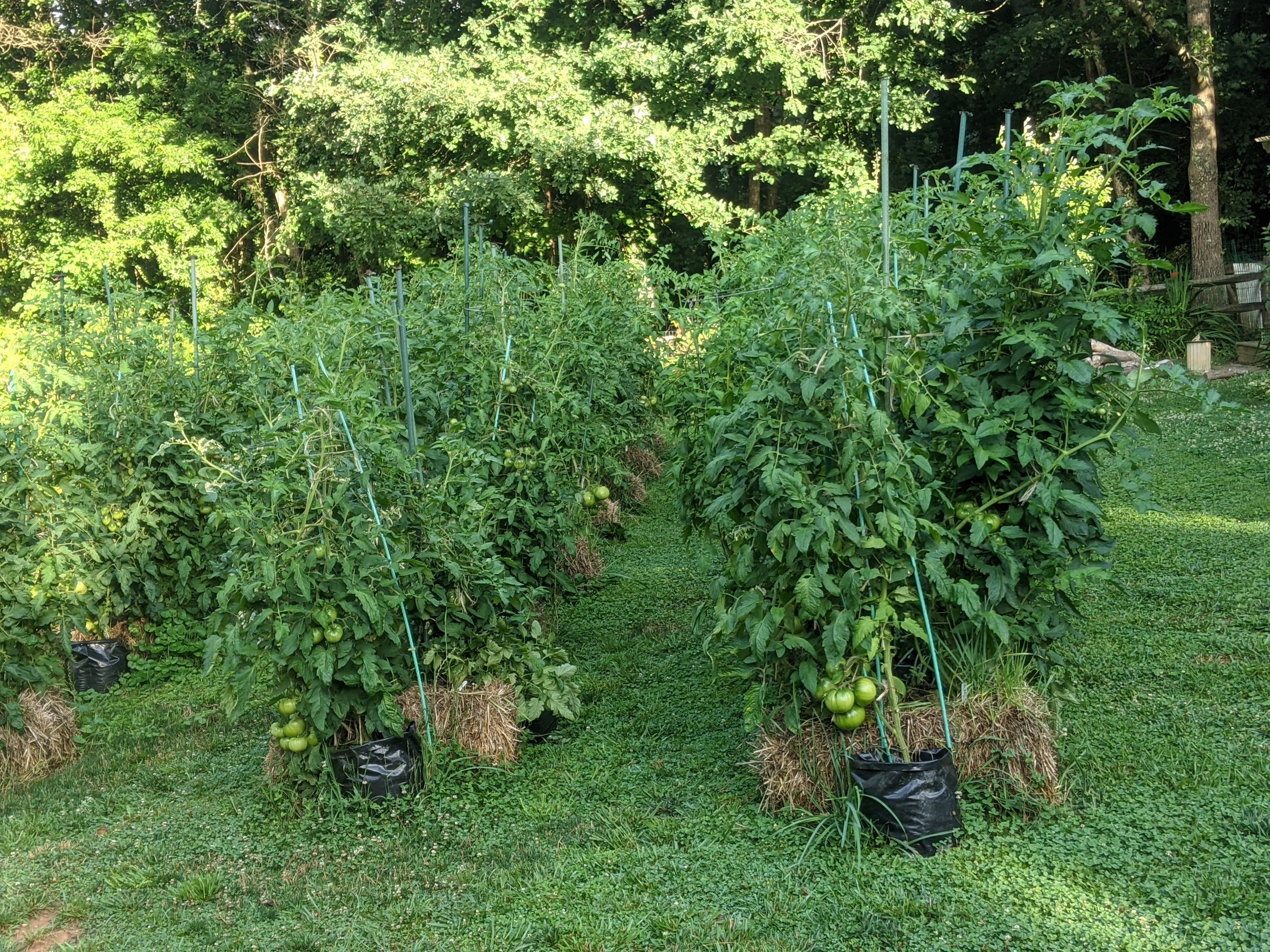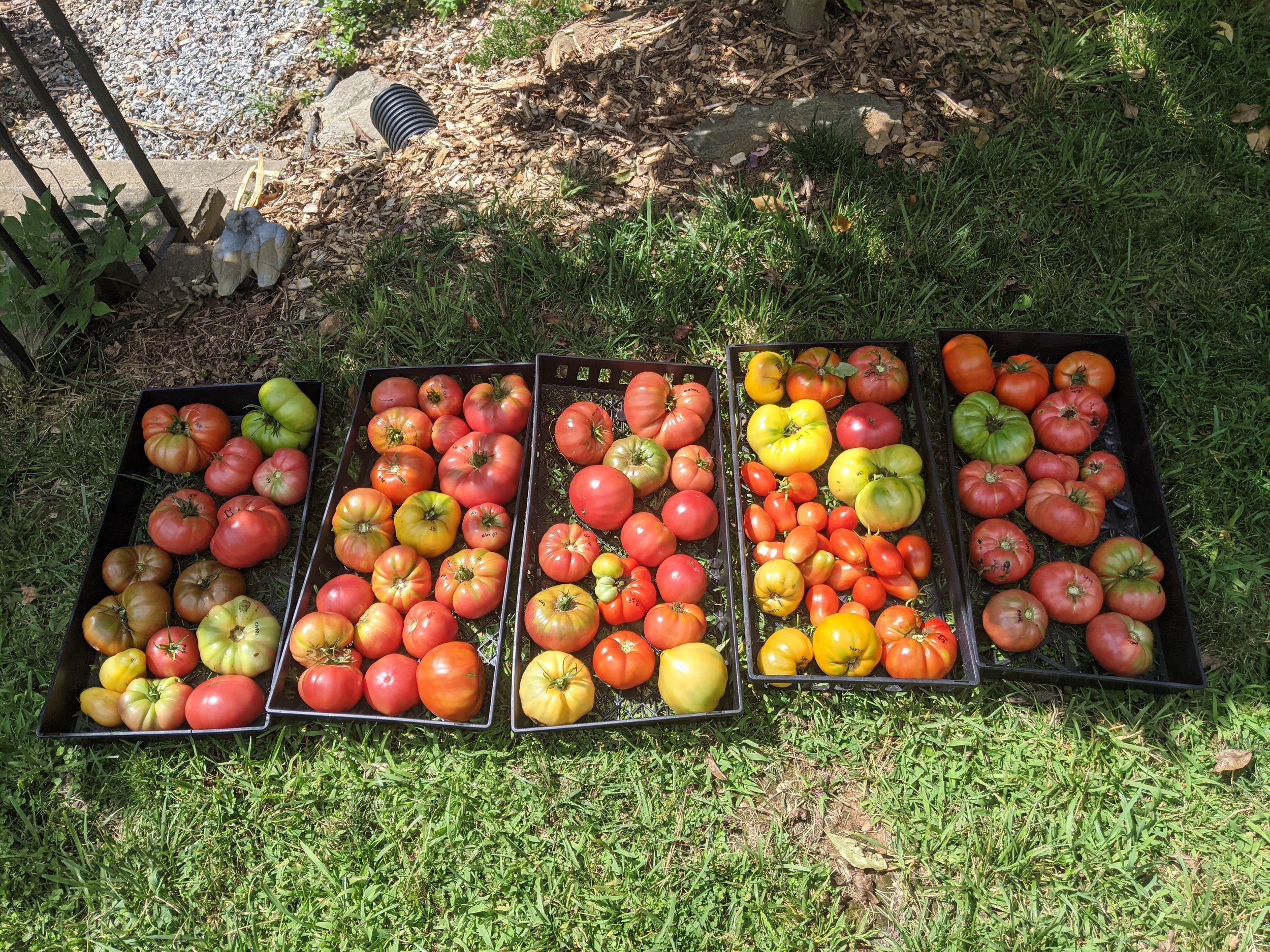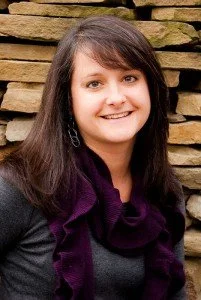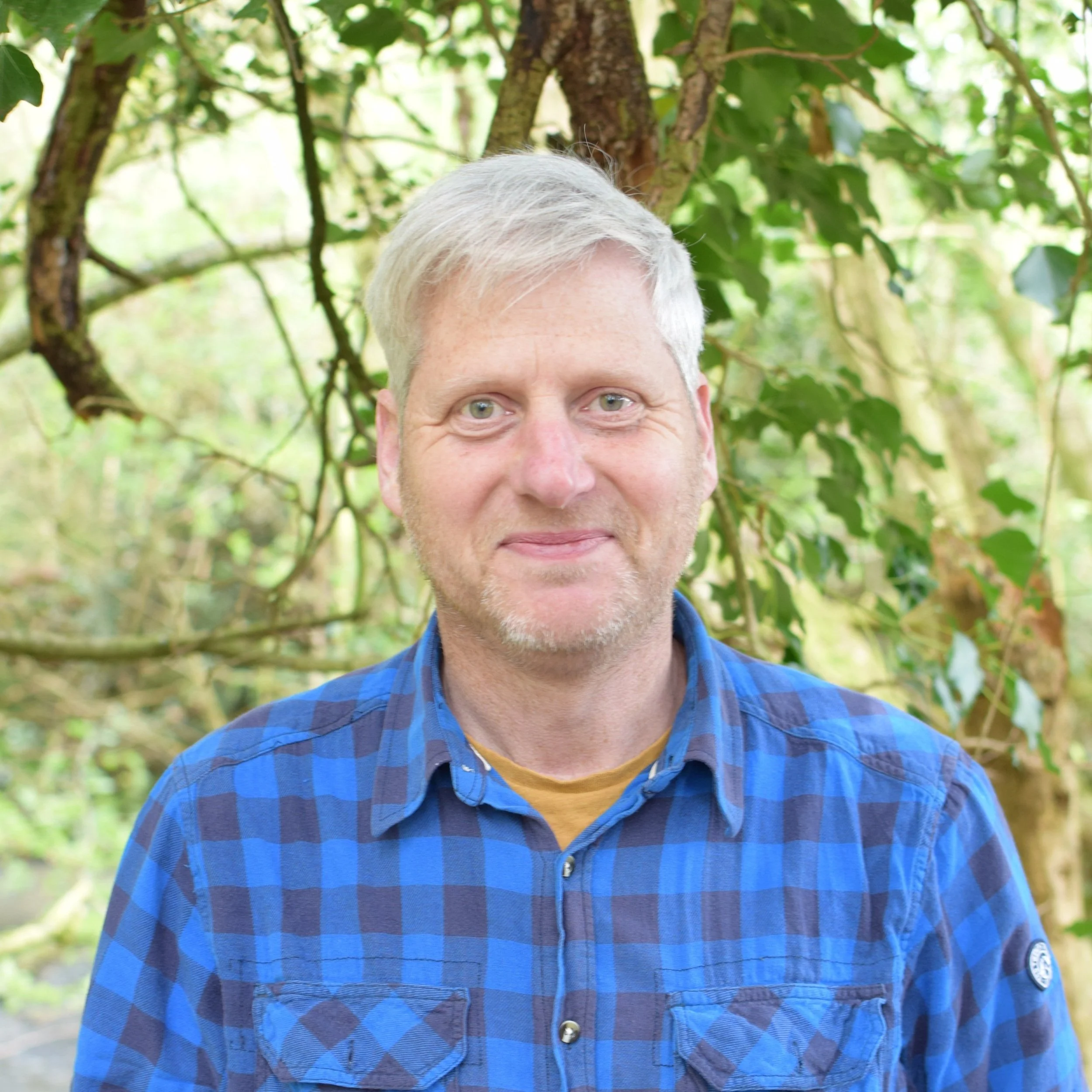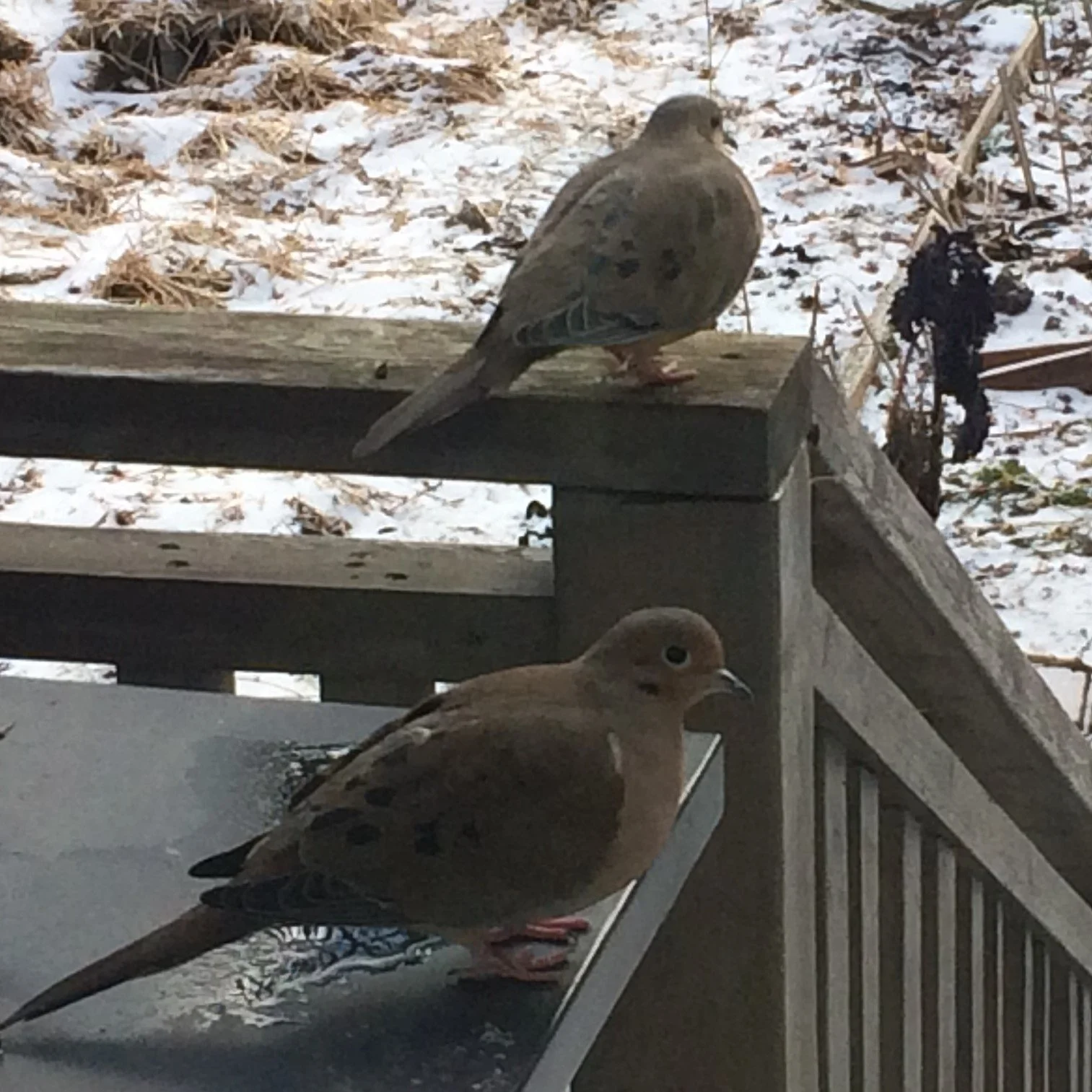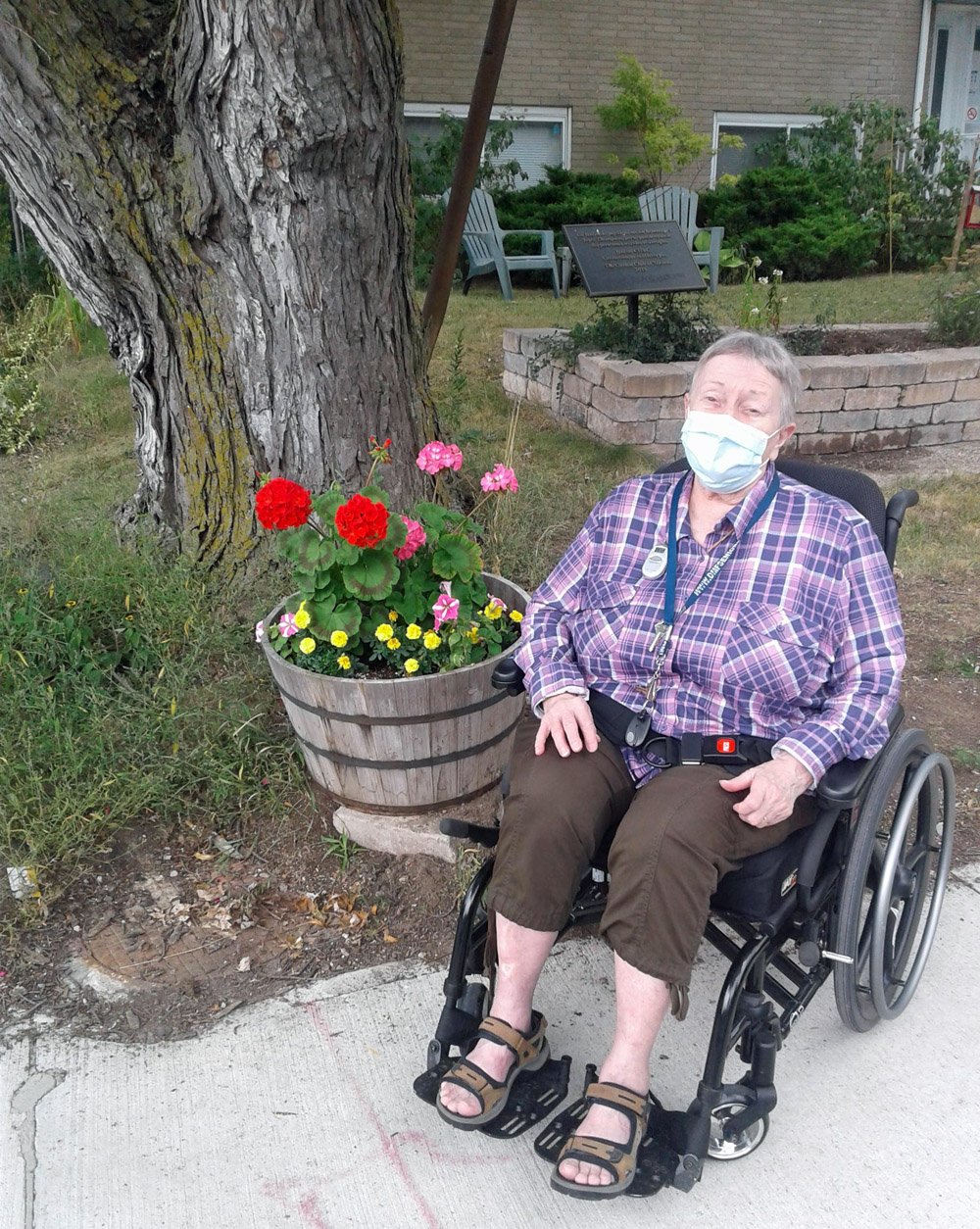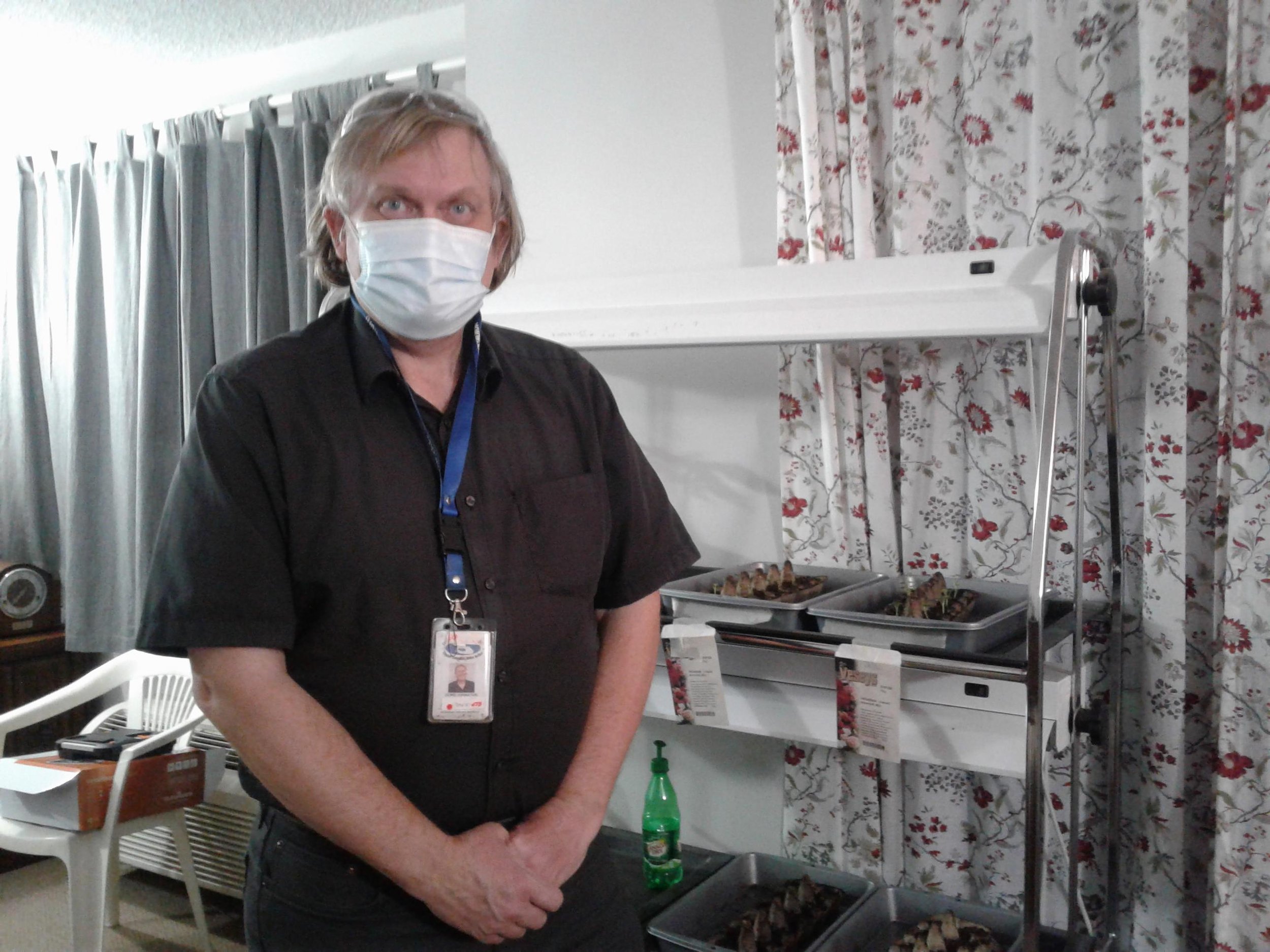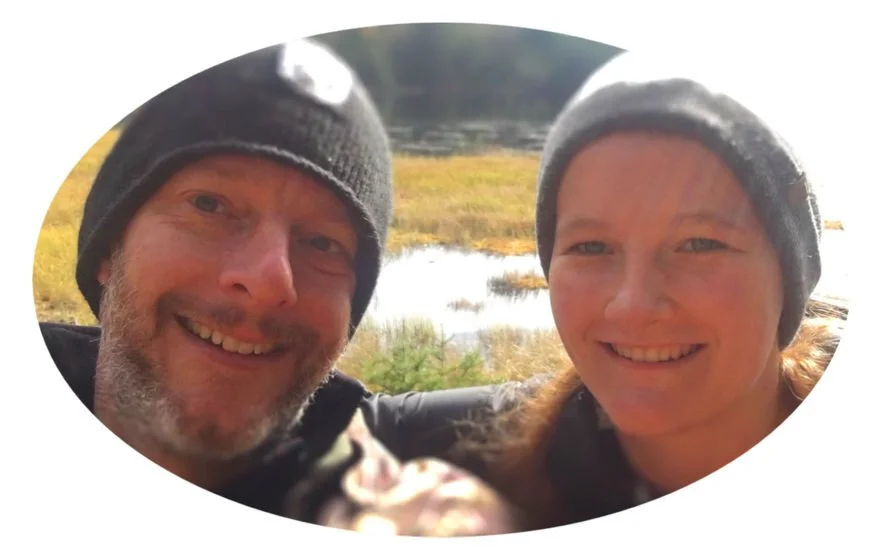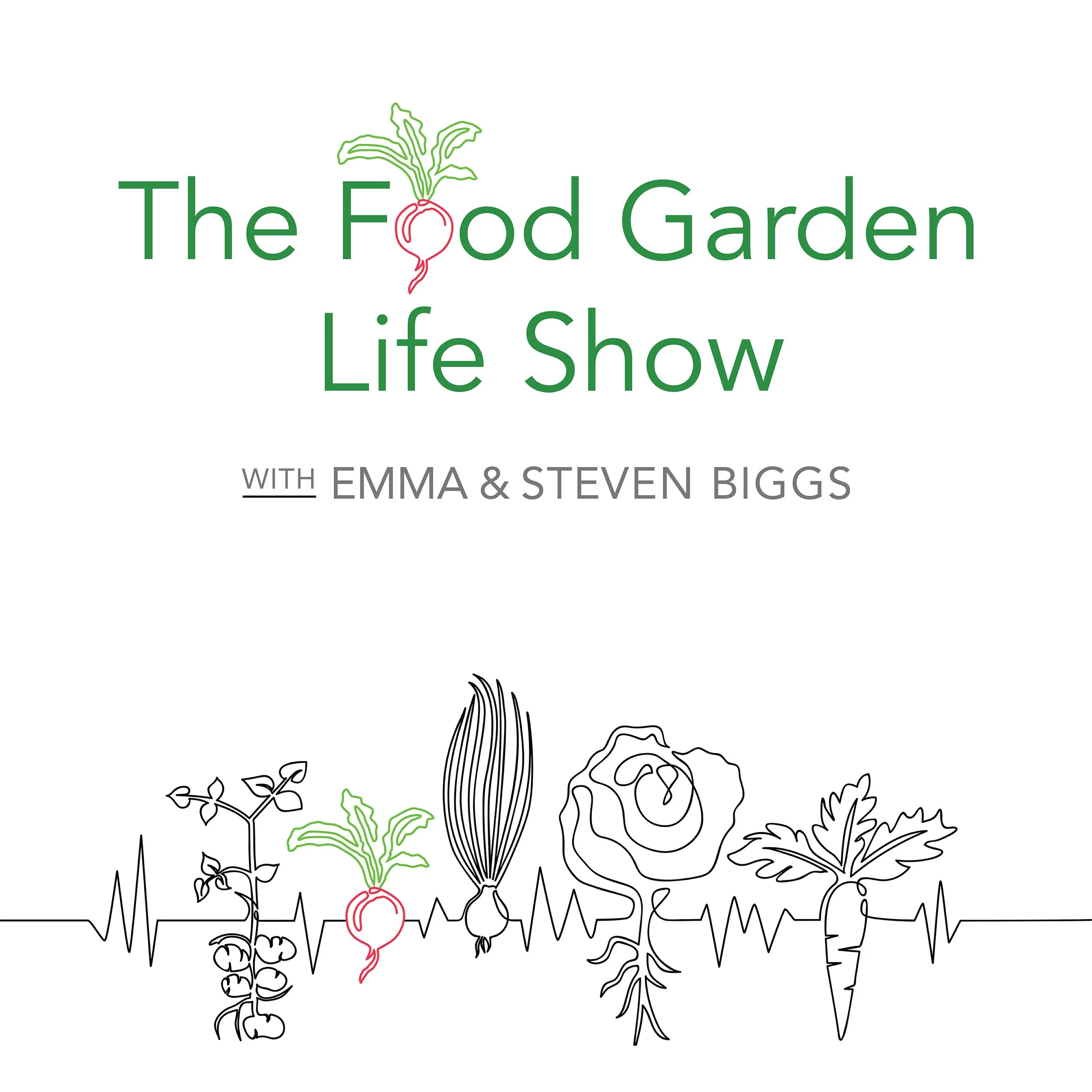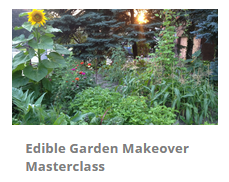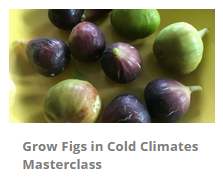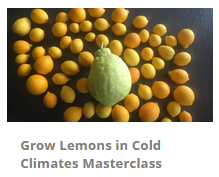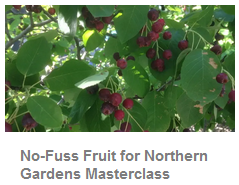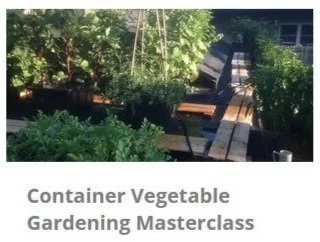Winter Vegetable Gardening with Wolfgang Palme
Wolfgang Palme talks about growing vegetables year-round and ways to grow vegetables through the winter.
Wolfgang Palme talks about winter-hardy vegetables and year-round growing. Photo Johannes Hloch.
Winter-Hardy Vegetables
Wolfgang Palme joins us to talk about winter-hardy vegetables and year-round growing. He is an agronomist, and head of the Research Institute of Horticulture in Austria.
Accidental Discovery
Palme’s journey into winter vegetable growing started by accident one year when autumn weather was unusually cold. Some of the test plots that he had not yet harvested survived, much to his surprise.
So he started to investigate cold-hardy crops.
He was surprised to find that that published frost hardiness recommendations are often incorrect.
Not New
Palme points out that growing cold-tolerant crops and using simple protective measures is nothing new. This knowledge has simply faded with the advent of large-scale, high-tech growing.
Low-tech, low-input approaches are often well suited to small farms and home gardeners. As well as costing less, there is a smaller environmental footprint.
“Keep it as simple as possible.”
Surviving Winter
Palme explains that frost is not the main challenge for overwintering greens: It’s moisture and disease.
A covering such as a hoop house, tunnel, or cold frame can keep leaves dry and reduce susceptibility to disease. In combination with a covering, good ventilation is important, to let humid air escape.
“We always think about the frost when we think about the winter season. But that’s not the main challenge for the plants.”
Book
Connect
Vienna City Farm: www.cityfarm.wien
From Ornamental Landscapes to Pretty Tasty Gardens
Lindsay Stuijfzand from Pretty Tasty Gardens talks about how she weaves her passion for growing food into her work as a landscaper.
Lindsay Stuijfzand from Pretty Tasty Gardens talks about how she weaves her passion for growing food into her work as a landscaper.
Edible Landscapes
Lindsay Stuijfzand talks about how she weaves her passion for growing food into her work as a landscaper.
Pretty Tasty Gardens
Stuijfzand is a horticulturist who runs Pretty Tasty Gardens, an edible-landscape garden company in Toronto.
Roots in Landscaping
When she first got into the industry, she worked in conventional landscaping — with a focus on ornamental plants and hardscaping.
As her interest in edible plants grew, she branched off into edible landscaping. It’s a path that makes her a bit of an outlier—or trailblazer—in the landscape industry.
Grow Food Indoors + Regenerative Gardening
In this episode: Growing food indoors with Kim Roman, author of How to Garden Indoors & Grow Your Own Food Year Round; and regenerative gardening with Stephanie Rose, author of The Regenerative Garden.
Stephanie Rose talks about regenerative gardening and Kim Roman talks about growing food indoors.
Grow Food Indoors
In the first part of this episode we chat about growing food indoors with Kim Roman, a garden educator and square-foot-gardening instructor.
Her new book is How to Garden Indoors & Grow Your Own Food Year Round.
Regenerative Gardening
In the second part of this episode we find out about regenerative gardening from Stephanie Rose. She is a permaculture designer and herbalist.
Her new book is The Regenerative Garden.
Grow Epic Tomatoes, with Joe Lamp'l and Craig LeHoullier
Joe Lamp’l and Craig LeHoullier talk about different ways to grow tomatoes, and share tips for a better harvest,
Joe Lamp’l and Craig LeHoullier talk about how to grow tomatoes, and their new course, Growing Epic Tomatoes.
The Best Way to Grow Tomatoes
There’s more than one way to slice a tomato; there’s more than one way to grow a tomato.
Growing tomatoes is like many things in life…there are lots of ways you can tackle it.
Do you have a favourite way? Or a tomato-growing tip handed down in your family?
Different Strokes, Different Folks
In this episode, we take a deep-dive into growing tomatoes with two experts who have very different approaches to growing tomatoes.
Garden expert, author, and broadcaster Joe Lamp’l loves growing tomatoes. He’s met lots of gardeners using a wide range of tomato-growing techniques through his work as the host and producer of the Growing a Greener World television series, and through his podcast, The joe gardener Show.
World-renowned tomato grower Craig LeHoullier co-leads the Dwarf Tomato Breeding project, has named and popularized many well-known tomato varieties such as ‘Cherokee Purple,’ and is an expert on straw-bale gardening. He’s the author of the book Epic Tomatoes.
Tomato Talk
Lamp’l and LeHoullier talk about:
The tomato-growing methods they use in their own gardens
How their gardens differ
Tomato-growing ideas they’ve learned from each other
Favourite tomato varieties
Tomato-growing techniques they’ve seen in other gardens
They also share tips for new gardeners. “Don’t get hung up on the destination, but learn to love the journey,” says LeHoullier.
“Don’t get hung up on the destination, but learn to love the journey.”
If this episode piqued your interest in tomatoes, tune in to the December 2020 episode entitled Tasty Tomatoes for Small Spaces: The Dwarf Tomato Breeding Project. In the episode, LeHoullier tells us about this citizen-science initiative to breed dwarf tomato varieties.
Co-operative Growing
Daniel Brisebois from La Ferme Cooperative Tourne-Sol talks about co-operative farming.
Daniel Brisebois joins us from La Ferme Cooperative Tourne-Sol near Montreal.
One Farm, Many Farmers
Daniel Brisebois joins us from La Ferme Cooperative Tourne-Sol near Montreal.
The farm operates as a workers co-operative, where farm owners are the workers.
When the farm started in 2005, sales were through both farmers markets and CSA baskets. Today, sales are entirely through CSA baskets.
Work-Life Balance
There is a focus on work-life balance. Vacation and parental leave — challenges for many farmers — are possible under the co-operative model.
“It’s always been important to us that we don’t burn people out.”
Seeds and Breeding
Seed sales have always been part of the farm business, but were a small portion in the beginning — $700 in the first year.
Today, the farm sells more seeds than vegetables, with an online seed store and seed racks in over 150 retail locations.
Spreadsheet Maniac
Brisebois believes in the importance of making business decisions based on data.
He uses spreadsheets to collect and understand farm data. He shares his passion for spreadsheets through his Farmer Spreadsheet Academy.
Attract Beneficial Bugs to Your Garden
Attracting beneficial insects to your garden with Jessica Walliser.
Jessica Walliser, author of Attracting Beneficial Bugs to Your Garden, talks about creating a healthy, balanced, and diverse garden that supports beneficial insects.
Beneficial Insects
If you’ve heard the terms beneficial insects, beneficial bugs, or biological control, these all relate to this ideas of letting some bugs help us deal with the challenges that other bugs cause for us.
In commercial horticultural production, beneficial bugs are big business. They’re used for some field crops, in greenhouses, in nurseries.
In Gardens
Beneficial bugs can help to control infestations of insect pests in gardens too. The gardener just needs to know where to look…and how to garden in a way that’s friendly to these beneficial bugs.
Pittsburgh-based horticulturist and award-winning author Jessica Walliser joins us to talk about attracting beneficial insects to gardens.
“Stop thinking of your garden as only a place to please you.”
Ornamental Edibles, Hort Therapy, Kids Gardening
Talking about gardening in wind, horticultural therapy, ornamental edibles, and gardening with children with Charlie Dobbin and Perla Sofia Curbelo.
Charlie Dobbin and Perla Sofia Curbelo join us to talk about ornamental edibles, gardening in wind, horticultural therapy, and gardening with kids.
Today we talk about wind tunnels, horticultural therapy, landscaping with edibles, and gardening with kids.
Our guests today are professional garden educators who have an infectious love of gardening.
We start in Prince Edward County in Ontario, chatting with consultant and horticulturist Charlie Dobbin about using edible plants in ornamental gardens, gardening in windy areas, and birds in the garden.
Then we head to Puerto Rico to chat with Perla Sofia Curbelo about horticultural therapy, gardening and wellness – and about gardening with kids!
Build Soil Health with Wood Chips
Ben Raskin, author of The Wood Chip Handbook, talks about using wood chips in the garden and in agriculture.
Ben Raskin, author of The Woodchip Handbook, talks about using wood chips in gardens and agriculture.
Wood chips: They’re abundant, inexpensive, and renewable. There are many possible applications in horticulture.
Uses of Wood Chips
Wood chips have many uses in gardens, farms, and landscapes:
Mulch to suppress weeds and conserve moisture
Heat for propagation
Growing media
High-carbon ingredient for composting systems
Soil amendments
Ben Raskin’s new book is The Wood Chip Handbook.
He sees a lot of untapped opportunity for wood chips in horticulture. He uses wood chips at the agroforestry farm he manages. And through his work as the head of horticulture and agroforestry at the Soil Association, talks to growers and researchers working with wood chips.
If this episode piqued your interest in wood chips, tune in to the October 2021 episode entitled, Compost Heater Heats a Hot Tub.
Gardening as Medicine for Mental Health
The Sunshine Garden at The Centre for Addiction and Mental Health in Toronto is a therapeutic garden for in-patients and out-patients.
Atullya Singh, CAMH Garden Co-ordinator with Foodshare, talks about the Sunshine Garden at The Centre for Addiction and Mental Health in Toronto.
The garden is the bridge.
For clients of The Centre for Addiction and Mental Health (CAMH) in Toronto, one way to connect with the surrounding community is through gardening.
Atullya Singh, CAMH Garden Co-ordinator, talks about the Sunshine Garden, located at the main hospital site in downtown Toronto.
When neighbours drop by for the weekly market where CAMH clients sell produce grown on site, Singh considers it as an opportunity to make stronger bonds with the community. “My mission is only accomplished if I have these customers connected to the actual garden,” he explains as he describes taking them over to see the garden.
Horticultural Therapy
Along with community connections, the garden is a way of providing horticultural therapy for CAMH clients. Singh explains that for some people, the social aspects are therapeutic. For others, it’s having something to focus on. For others, its being outdoors.
The garden is a joint venture between CAMH and a Toronto organization called Foodshare, which supports community-based food initiatives. .
Natural Beekeeping
Common Sense Natural Beekeeping with Kim Flottum and Stephanie Bruneau.
Beekeeping with a bees-eye view.
Our guests today help us explore bee-friendly beekeeping techniques.
Lessons from the way bees live in the wild
Management strategies that respect the functioning of bee hives
Hive design elements that promote colony health and resilience
Common Sense Natural Beekeeping
Kim Flottum is editor emeritus of Bee Culture magazine. He teaches beekeeping courses, lectures on beekeeping, and writes about beekeeping and the business of bees. He also hosts the Beekeeping Today and Honeybee Obscura podcasts.
Stephanie Bruneau is a beekeeper, herbalist, and artist. She runs The Benevolent Bee, where she sells honey and bee-related products. She lectures on bees and bee-derived products.
In their new book, Common Sense Natural Beekeeping, they explore ways to keep bees while minimizing human intervention.
Landmarks help Blind Gardeners + Gardening for Birds
Gardening for the deaf-blind community, and gardening to attract birds.
The gardens at the Canadian Hellen Keller Centre; and tips to attract birds to the garden.
Gardening for the Blind
Christine Nichols and Gord Johnston share ideas to help blind and low-vision people garden, and talk about the gardens at the Canadian Hellen Keller Centre, which serves the deaf-blind community.
They talk about:
Using landmarks in the garden
Colours for low-vision gardeners
Spatial awareness in the garden
Visual memory
Bird Gardening
Steven Price, past president of Birds Canada, talks about gardening for birds.
Steven Price, past president of Birds Canada, talks about how to attract birds to gardens and how to make gardens bird-friendly.
He talks about:
Plants
Features (e.g. water features)
Feed
For more ideas about gardening for birds, visit birdgardens.ca.



